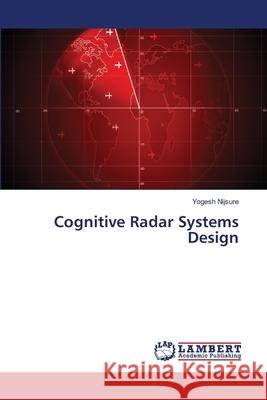Cognitive Radar Systems Design » książka
Cognitive Radar Systems Design
ISBN-13: 9783659185182 / Angielski / Miękka / 2014 / 188 str.
In recent years, several emerging technologies in modern radar system design are attracting the attention of radar researchers and practitioners alike, noteworthy among which are multiple-input multiple-output(MIMO), ultra wideband (UWB) and joint communication-radar technologies. This book, in particular focuses upon a cognitive approach to design these modern radars. In the existing literature, these technologies have been implemented on a traditional platform in which the transmitter and receiver subsystems are discrete and do not exchange vital radar scene information. Although such radar architectures benefit from these mentioned technological advances, their performance remains sub-optimal due to the lack of exchange of dynamic radar scene information between the subsystems. Consequently, such systems are not capable to adapt their operational parameters "on the fly," which is in accordance with the dynamic radar environment. This book explores the research gap of evaluating cognitive mechanisms, which could enable modern radars to adapt their operational parameters like waveform, power and spectrum by continually learning about the radar scene.
In recent years, several emerging technologies in modern radar system design are attracting the attention of radar researchers and practitioners alike, noteworthy among which are multiple-input multiple-output(MIMO), ultra wideband (UWB) and joint communication-radar technologies. This book, in particular focuses upon a cognitive approach to design these modern radars. In the existing literature, these technologies have been implemented on a traditional platform in which the transmitter and receiver subsystems are discrete and do not exchange vital radar scene information. Although such radar architectures benefit from these mentioned technological advances, their performance remains sub-optimal due to the lack of exchange of dynamic radar scene information between the subsystems. Consequently, such systems are not capable to adapt their operational parameters "on the fly", which is in accordance with the dynamic radar environment. This book explores the research gap of evaluating cognitive mechanisms, which could enable modern radars to adapt their operational parameters like waveform, power and spectrum by continually learning about the radar scene.











